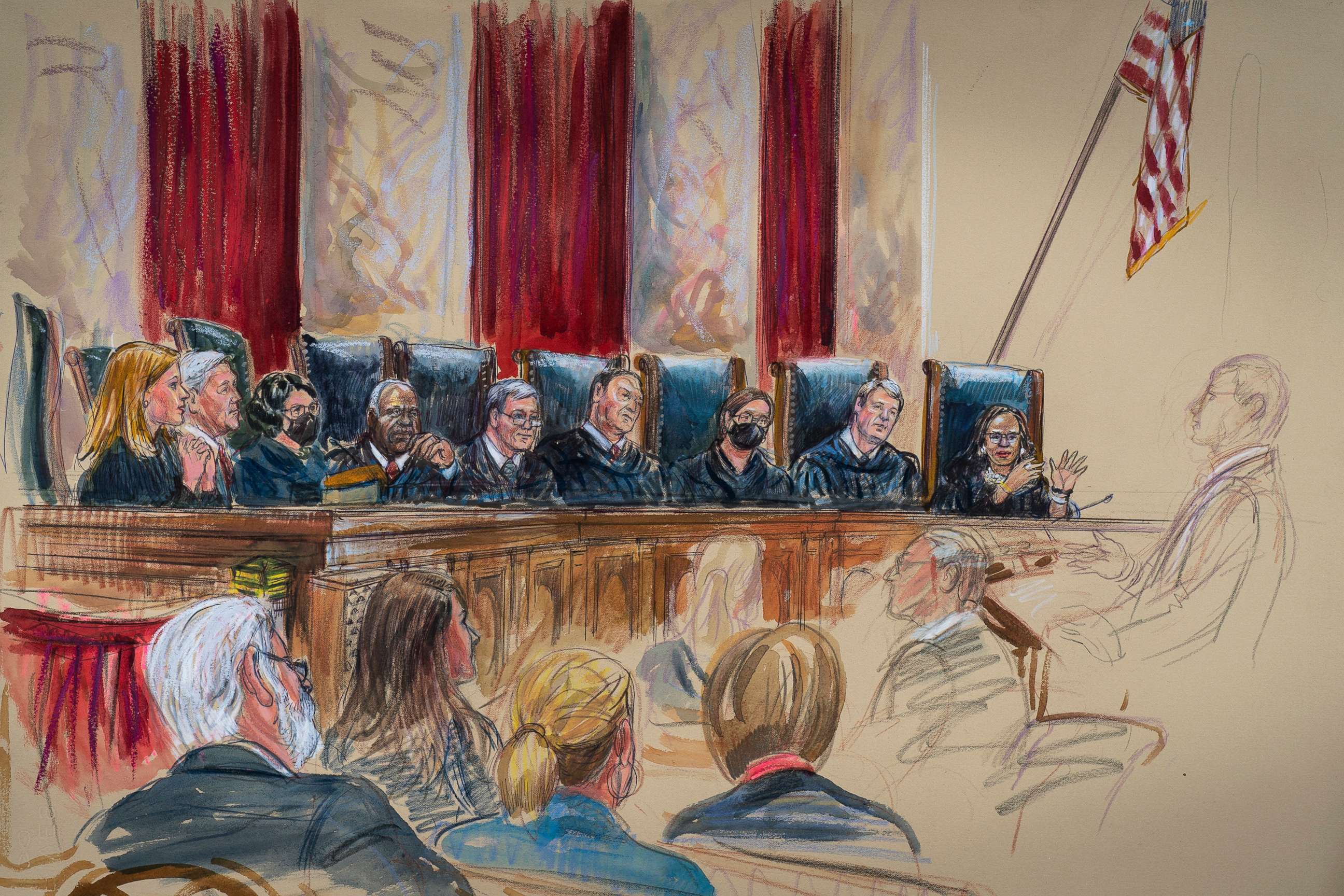In Supreme Court debut, Justice Jackson grills attorney challenging EPA power under Clean Water Act
She spoke at least 21 times during Monday's oral arguments.
After her investiture at the U.S. Supreme Court last week, Justice Ketanji Brown Jackson heralded her "seat at the table" and a desire to "get to work."
During oral arguments Monday, the public got a glimpse of what that looks like: the nation's first Black woman justice emerged as a remarkably active questioner in her debut on the bench, making clear she will not hesitate to make her mark on debate.
"Let me try to bring some enlightenment to it," Jackson said dryly to an attorney challenging key parts of the Clean Water Act.
The law gives the Environmental Protection Agency authority to regulate "waters of the United States," but there is widespread disagreement about the extent to which wetlands count.
The case, the first of the court's new term, will decide the scope of EPA power over tens of millions of acres of marshland and swamp land. Environmental advocates say public health and safety hangs in the balance.
"Isn't the issue what Congress intended?" Jackson pressed. "Why is it that your conception of this does not relate in any way to Congress' primary objective?"
"The objective of the statute is to ensure the chemical, physical, and biological integrity of the nation's waters," she added.

Attorney Damien Schiff, representing an Idaho couple that wants to build their dream home on a lot near Priest Lake, argued that the federal government should not have unbound power to regulate wetlands on Americans' property without direct, physical connection to a major body of water.
"The Sacketts' property contains no waters, much less waters of the U.S.," Schiff said. The EPA contends marsh on the Sacketts' property has a "significant nexus" to the nearby lake.
The court will decide early next year how to draw the line.
The dispute played out for nearly two hours inside a courtroom packed with attorneys, clerks, special guests, and members of the public for the first time in two and a half years since the COVID-19 pandemic forced the arguments to go virtual. Masks were not required, though Justices Sonia Sotomayor and Elena Kagan wore them on the bench.
The nine justices assumed new seating assignments, by seniority, for the first time since the retirement of Justice Stephen Breyer. Flanking Chief Justice John Roberts at the center are Justices Clarence Thomas and Samuel Alito. Justices Amy Coney Barrett and Jackson, as the newest members of the court, hold the seats at each end of the bench.

Heightened security measures were visible throughout the courthouse, including a new requirement that water cannot be brought inside the building, but a steel security fence that had encircled the Court starting in June has been removed.
While the proceedings were again opened to the public in-person, the Court has decided to continue livestream audio online. "I think that's a great compromise on transparency and a huge step for the chief justice," said Sarah Isgur, a former Justice Department attorney and now an ABC News legal analyst.
The court gaveled in a new term and welcomed Justice Jackson as public confidence in the institution has slumped to a new low.
Jackson's appointment does not alter the ideological makeup of the court -- six conservatives, three liberals -- but her presence could change dynamics in untold ways.
"Each new justice really changes the institution," said Kate Shaw of Cardoza School of Law and an ABC News contributor. "By all accounts, she is a bridge builder and a warm and collegial person. I don't expect any radical change, but it'll matter for the public to see her on the bench, and I think it will matter as the court starts issuing opinions."
Jackson spoke at least 21 times during Monday's argument in the Sackett case, according to an ABC News review of the transcript.
"Although Justice Jackson might be more liberal in some respects than Justice Breyer, she won't change the really polarized cases. But every new justice is a new court, and there could be some unexpected alliances," Jeffrey Rosen, president and CEO of the National Constitution Center, said.



